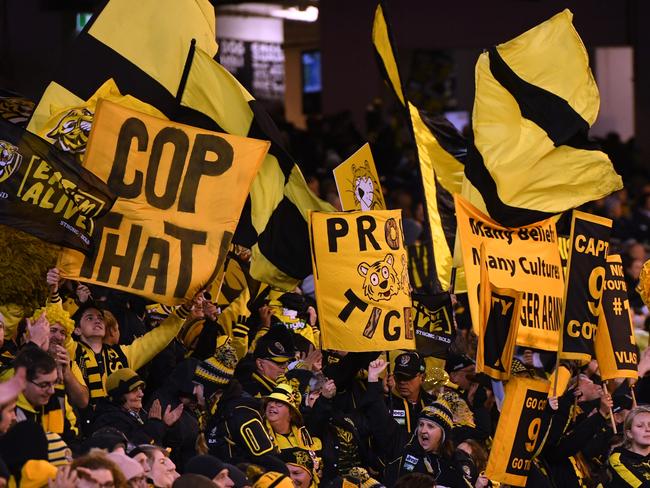Bargain pleas for crims
THE secrecy behind plea deals before Victorian courts — effectively trading lighter sentences for guilty pleas — has to end.

Opinion
Don't miss out on the headlines from Opinion. Followed categories will be added to My News.
THE secrecy behind plea deals before Victorian courts — effectively trading lighter sentences for guilty pleas — has to end.
At the heart of any true justice system must be transparency — that for justice to be done, it must also be seen to be done.
In the absence of objective scrutiny of such plea arrangements, and the provision to the public of cogent reasons for them, getting away with murder could be as simple as pleading guilty to manslaughter.
As revealed in today’s Herald Sun, in the past year alone, the Office of Public Prosecutions has signed off on the downgrading of a range of the most serious charges, including murder and attempted murder, in return for guilty pleas.
A yet-to-be published report by legal academics Emeritus Professor Arie Freiberg and Dr Asher Flynn found that 87 per cent of the cases studied resulted in plea negotiations where charges were dropped.
The report, to appear in a submission to the Criminology Research Council, found it usually led to an accused pleading guilty to fewer and less serious offences.
Plea deals can be used in the interests of justice. Often, in complex or circumstantial cases, they can be used by both prosecutors and defence counsel to find commonsensical, common ground.
Importantly, they can also save victims and witnesses from having to give evidence and be subjected to cross-examination and the trauma of a trial process. In finalising criminal matters rather than resorting to trials, plea deals also save the community significant costs and help to keep other cases in the court system flowing.
But such plea deals cannot be left behind closed doors.
When they occur, the courts — and the public, through open justice reporting — should be informed of the reasons why the plea arrangement was struck and its sentencing implications.
As reported today, secret plea bargains have won major sentence reductions for a range of serious crimes, some of which, arguably, could have proceeded to trial.
The deals are exposing victims to being re-victimised and are rewarding killers with discounts.
Cases subject to plea deals in 2017 include those of a bikie, charged with murdering a woman by shooting her in the head, who pleaded guilty to manslaughter; a husband, charged with attempted murder after slashing his wife’s head with an axe, who pleaded guilty to intentionally causing injury; a teenager, charged with murdering a friend by shooting him at close range, who pleaded guilty to manslaughter because he was on drugs; and two assailants, charged with the attempted murder of a police officer whom they shot in the face, who pleaded guilty to recklessly causing injury.
That the Office of Public Prosecutions does not keep statistics on plea bargaining illustrates the lack of regulatory oversight.
Data obtained under a Freedom of Information request did, however, find that pleas had increased by 10 per cent since 2011/12, suggesting that the practice is growing, possibly partly as a result of case pressure on the court system.
As Victoria’s population grows and legislative reforms lead to tougher jail terms, we cannot allow caseload pressure to unduly drive plea deals.
Some prosecutions demand a pragmatic approach to plea negotiations, but they should not be secret, and should not be a bargain for our most serious offenders.
AFL MUST STOP RIPOFFS
THE Tiger roar that echoed around the MCG on Friday night was a reminder of just
how great footy finals can be.
Tens of thousands of yellow-and-black believers created a stunning atmosphere that illustrated what our great game is all about — the fans.
Few neutral observers could fail to have been moved by the emotion of the Tigers’ triumph.
The Richmond army will already be counting down the sleeps until the preliminary final at the ’G in 12 days, and then dreaming of the Grand Final a week later.

how great footy finals can be. Picture: AAP
Hence, it is crucial that as many “real fans” as possible fill the mighty arena for the finals blockbusters.
Everyone acknowledges the role that sponsors and corporate patrons play in the sport.
Their dollars and support enable the game to be the high-calibre spectacle and successful industry that it has become.
But the fans are the game’s soul.
It’s an often repeated saying that footy is all about the fans. It’s often repeated because it’s true.
So protecting fans, by stopping ripoffs by those reselling finals tickets, should be at the front of the minds of AFL bosses.
Seats are being sold for many times their face value on the secondary market, and are also sometimes resold more than once, resulting in buyers whose tickets have already been scanned being turned away at the gate.
The AFL must work with ticketing agencies to head off these resale rorts.
It can be done.
Other codes and concert promoters have already taken action to help vulnerable and desperate fans being taken for a costly ride.


